Films That Failed While Trying to Cash In on Nostalgia
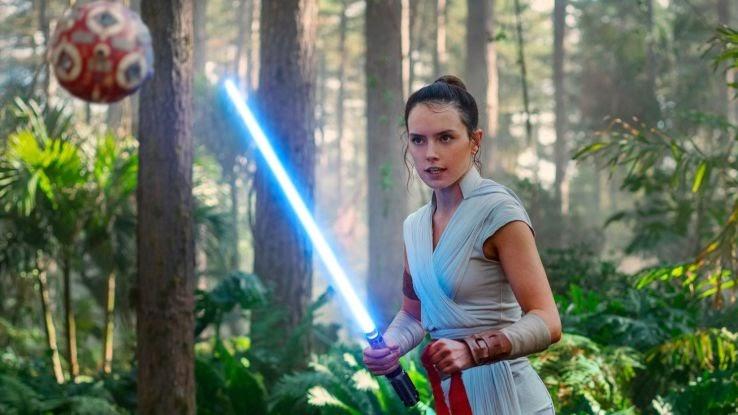
In eras past, movie studios abided by one common rule: sex and violence sell. But in the last decade, that rule has changed. Hollywood’s new mantra is “nostalgia sells,” as evidenced by countless reboots and remakes — from Ghostbusters to Pet Semetary — to sequels like Terminator: Dark Fate and Star Wars: Episode VII—The Force Awakens.
Sure, this could mean Hollywood’s creativity is waning, but it might just mean nostalgia is an easy way for studios to cash in — less risk, higher reward, thanks to all those old franchises with built-in, dedicated fanbases. However, leaning into the past and catering to fans isn’t always the most successful route. As these failed films prove, nothing is a sure bet.
The Mummy (2017)
A remake of The Mummy from both 1932 and 1999, Universal’s 2017 take on the classic monster movie about an ancient Egyptian mummy was intended to kick off an entire cinematic universe. Dubbed the Dark Universe, Universal’s foray into this new way connecting popular franchises was meant to relaunch other classic monsters, like the Invisible Man.
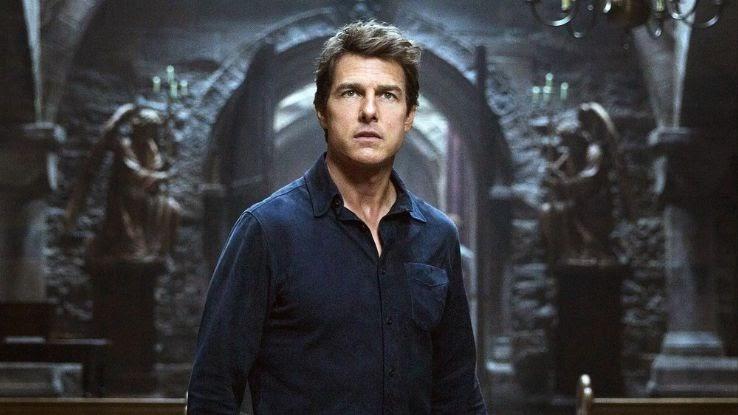
If there’s one thing the film world needs, it’s another cinematic universe poised to compete with the success of Marvel and Star Wars, right? Wrong. After The Mummy received terrible reviews and tanked at the box office, the universe it was supposed to set into motion was axed without a second thought. Much like the DC Extended Universe, the plan going forward is for Universal monster-movie remakes to stand alone with little crossover. Here’s hoping Tom Cruise doesn’t find himself in a similar situation with the much-awaited 2020 Top Gun sequel.
Flatliners (2017)
A reboot-sequel hybrid to a ’90s movie that not many people even cared about in the first place, 2017’s Flatliners brought back the original film’s leading actor Keifer Sutherland to train a new generation of Flatliners — a group of medical students who stop their hearts to explore the afterlife.
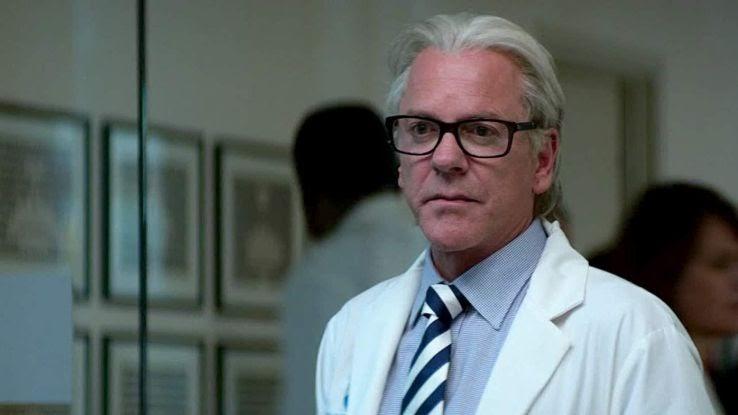
Hit with negativity on all sides, any plans for future Flatliners sequels were squashed before the film had left theaters. You can’t blame the studio for trying to make something out of nothing, but you can penalize it for doing that poorly. The film’s tagline reads, “Cross the line — Death will follow you back.” Here’s the thing: If you sat through Flatliners, you’re probably hoping that catchphrase comes true.
Black Christmas (2019)
The second remake of the seminal 1970s slasher film — often credited with helping to invent the genre itself — was not anywhere near as well-received as the original…or even the 2006 version. Embracing a PG-13 rating and some supernatural elements not present in any other iteration, 2019’s Black Christmas definitely missed the mark.
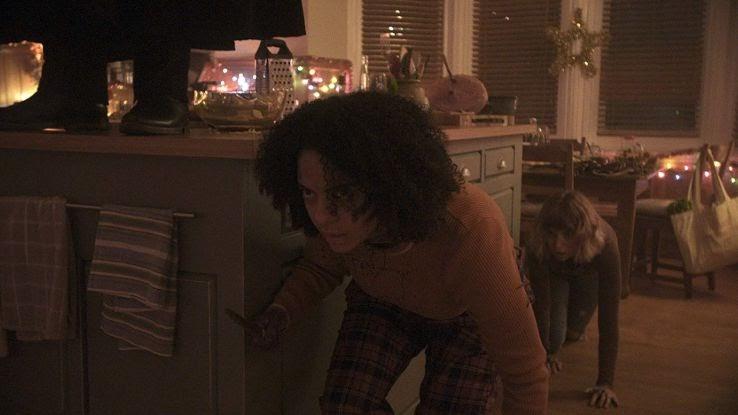
Criticized for adhering too closely to its rating and not being subversive enough with the slasher-genre tropes, Black Christmas failed to bring in horror fans, Christmas lovers or even those looking for a bit of 1970s nostalgia. A critic for Alternative Lens noted that “We need more feminist genre cinema, but that doesn’t mean we have to accept half-baked films like this.” Sounds like a real lump of coal to us.
Poltergeist (2015)
A monumental horror film for all involved, Tobe Hooper’s 1982 classic Poltergeist has remained a tremendously revered horror film even after all these decades. Rumored to be aided immensely by producer Steven Spielberg, the film is an ’80s relic. This is why it’s so strange that MGM decided to give the film a contemporary update.
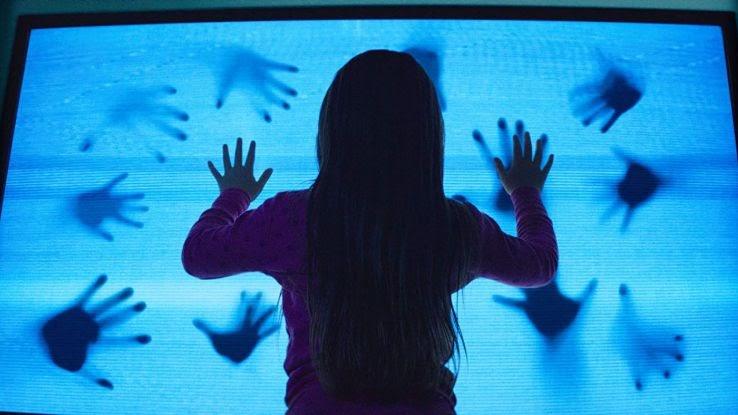
Starring Sam Rockwell and Rosemarie DeWitt, the 2015 film takes the original’s theme — a fear of new technology — and completely squanders it. Those looking for an ’80s throwback were let down by this. The jump scares are strange: There are squirrels in the attic and puppets falling out of crawl spaces — none of which hold a candle to the actual scares in the original. Needless to say, the scariest part was spending $16 on a movie ticket.
Point Break (2015)
Keanu Reeves. Patrick Swayze. Kathryn Bigelow. 1991’s Point Break was an early indicator that the rest of the decade would be filled with some of the most entertaining, over-the-top action films ever made. Even though the movie still holds up today, ’90s nostalgia reigns supreme, which, evidently, inspired filmmakers to remake the classic.
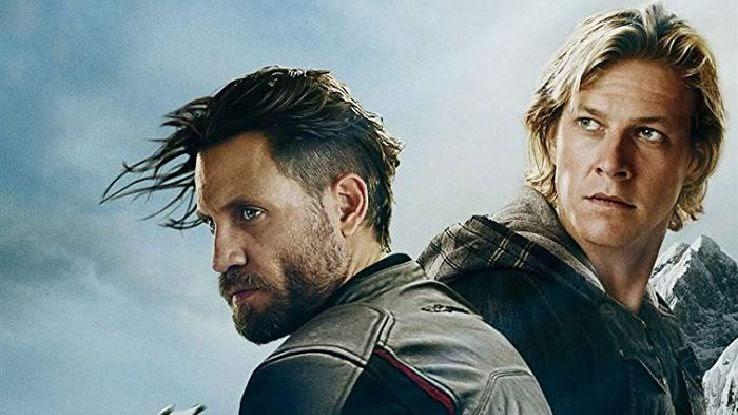
For whatever reason, the higher-ups decided that audiences would lose it for a throwback like this one, thus the 2015 remake of Point Break that nobody asked for hit theaters. To the benefit of the masses, the film flopped and disappeared into the forgotten-movie aether. Rotten Tomatoes aggregate pull quote called the film “bereft of purpose,” which leads us to firmly believe that this remake should’ve been retitled Pointless.
Red Dawn (2012)
Conceived in the throes of an extremely tense time between the United States and Soviet Russia, the 1980s cult classic Red Dawn saw a group of teens fighting off waves of communists who’d just invaded America. It’s a bit of illogical foreign-policy fantasy, but it really resonated with audiences.
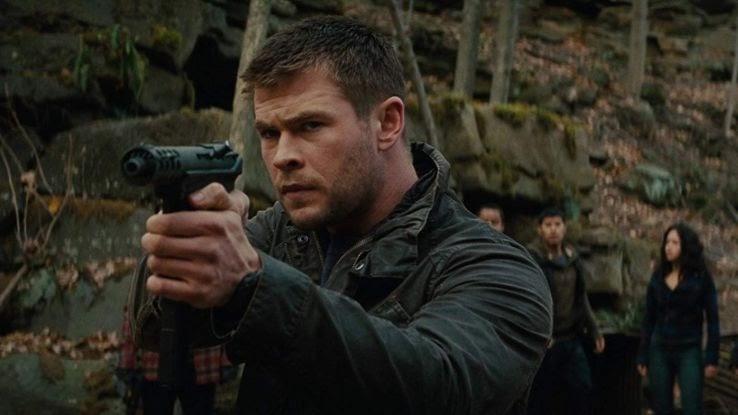
Naturally, as the U.S. faced a new foreign power in the 21st century — North Korea — it was only a matter of time before a filmmaker decided to update Red Dawn with a dash of dopey ’80s pastiche. It’s not good. In fact, not even Thor himself — a.k.a. Chris Hemsworth — could save this one. The aggregate pull quote on Rotten Tomatoes really sums it up nicely, noting that “[Red Dawn (2012)] pays tribute [to the original by] delivering the same short shrift to character development and general logic.”
Planet of the Apes (2001)
A hard reboot of the hugely iconic 1968 film of the same name, 2001’s Planet of the Apes was a complete and total misfire on almost every level. Intended to replicate the look and feel of the sci-fi epics of the ’60s with an added modern twist, Tim Burton and crew were simply doing too much with this movie.
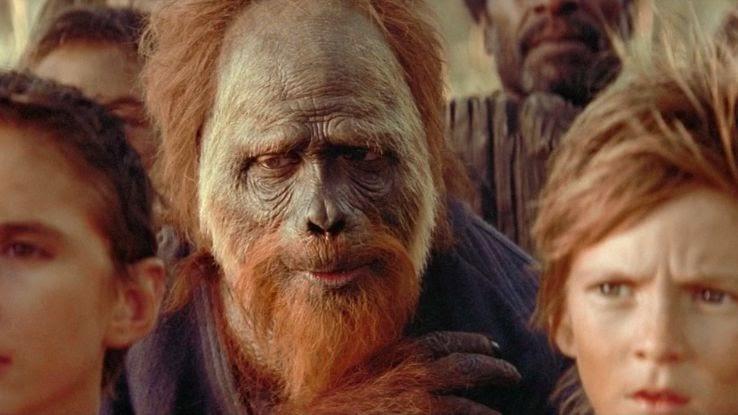
Nostalgia for the 1960s remains as prevalent as ever, with films like Once Upon a Time in Hollywood still bringing in plenty of love. But Burton’s early 2000s remake didn’t have the same luck. David Edelstein of Slate writes, “Monkey see old hit, monkey do remake.” Needless to say, no matter how solid the idea may seem, sometimes there’s just no recapturing that Hollywood magic of yesteryear.
Robin Hood (2018)
This was one of two big Robin Hood movies to be released in the 2010s, and you have to wonder why studios keep returning to the well here. With the latest iteration, released back in 2018, producers saw a loss of tens of millions of dollars.
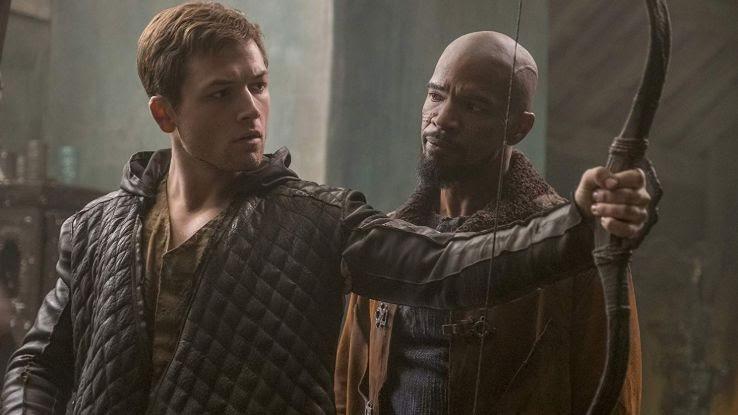
It’s likely that the only reason people turn to this story is because it’s public domain, but even the Ridley Scott version from 2010, which starred the likes of Cate Blanchett, Oscar Isaac and Russell Crowe, couldn’t pull off a compelling reinvention. A longing not for decades but for centuries ago, Robin Hood and other versions of the classic character never seem to be as cunning or resourceful as they think they are. Soon enough, studios might need the character’s trademark financial assistance.
CHiPs (2017)
Written and directed by comedic actor Dax Shepard, 2017’s CHiPs brought the little-known 1970s TV series to the big screen a la Phil Lord and Chris Miller’s 21 Jump Street films from earlier in the decade. Unlike their films, which managed to juggle ’90s nostalgia and modern sensibilities, CHiPs was a total flop.
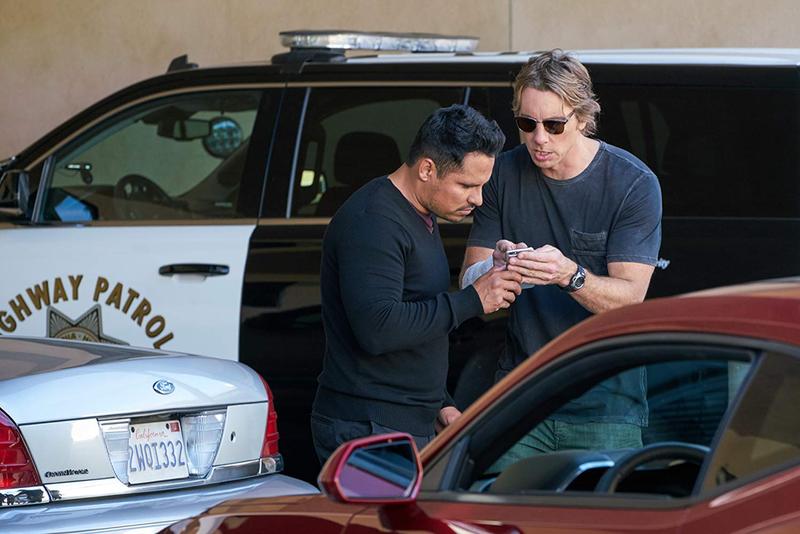
Whether it was because of the audience’s unfamiliarity with the source material or the film’s failure to harken back to the 1970s, Shepard’s film was critically panned and barely made more than its budget of $25 million. Louisa Moore of Screen Zealots wrote that “Mindless cinema can be fun, but not when it’s this awful.”
Annie (2014)
Based on one of the most popular Broadway musicals of all time, 2014’s Annie remake hoped to update the classic story with a bit of relevant plotting while also managing to maintain the classic aesthetic and feel of the original. Needless to say, it did not.
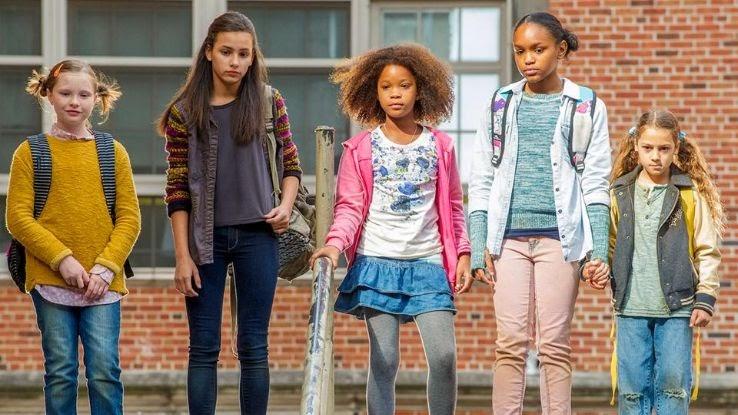
Managing to completely botch the original’s 1970s look and feel — as well as its original 1930s setting due to its attempt to modernize the story — Annie was criticized quite heavily from the get-go. Rotten Tomatoes puts it perfectly: Annie‘s bevy of super likeable actors — Quvenzhane Wallis, Jamie Foxx, Rose Byrne and Cameron Diaz — is “smother[ed]… under clichés, cloying cuteness, and a distasteful materialism.” Several years later, the film is completely forgotten. It’s like it never existed.
Ben-Hur (2016)
Could you imagine the blowback if anyone ever tried to remake something like The Wizard of Oz or Lawrence of Arabia or another film that’s an unimpeachable classic? The feeling of shock and disgust associated with this thought is what comes to the forefront when thinking about 2016’s Ben-Hur.
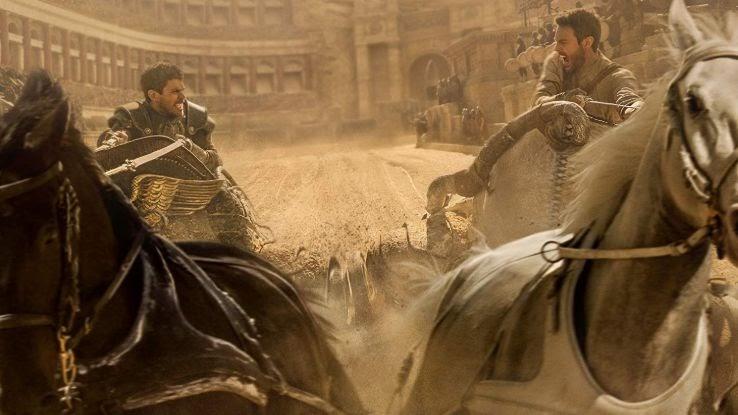
While the minds behind it considered this remake a different take on the same material, this film will never seem like anything other than a straight remake of one of the most important films of the 1950s. The aggregate summary for Ben-Hur on Rotten Tomatoes ranks among the website’s funniest, reading “How do you fight an idea? By filming a remake that has too few of its own, and tries to cover it up with choppy editing and CGI.” Not even Morgan Freeman could save this flop.
RoboCop (2014)
Paul Verhoeven is one of the greatest champions of practical effects and science fiction that the 1980s had ever seen. Mastermind and auteur Verhoeven’s RoboCop is one of many classics he’s created. That’s why a RoboCop remake just didn’t make sense.
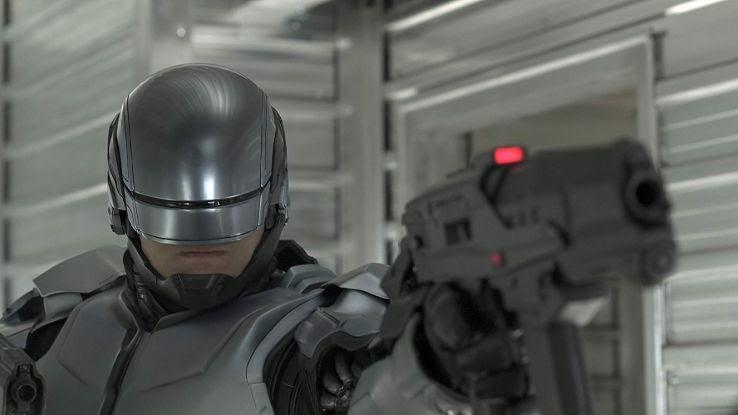
Borne from a place of nostalgia for ’80s classics and a yearning for the very near future, 2014’s RoboCop seemed to please no one and anger everyone. It made money, sure, but critics and audiences seemed to be united in shunning the film, despite the undeniable star power of action films’ staple actors Samuel L. Jackson, Michael Keaton and Gary Oldman.
Carrie (2013)
Stephen King’s high school horror story Carrie was brought to the big screen by Brian De Palma in the mid-1970s. An age-old story, Carrie tells of typical high school drama amplified up to 11. As a result, it’s essentially timeless.
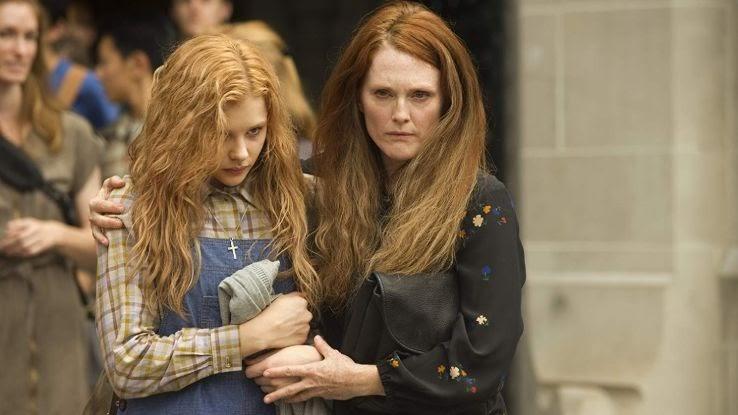
For this reason, 2013’s remake of King’s classic novel just doesn’t work. Devoid of the ’70s vibes and the feel of the original, the Carrie remake tried and failed to tap into the same energy that made De Palma’s so great. Sure, it features the likes of Chloë Grace Moretz, Ansel Elgort and Julianne Moore, but it was a fiasco. Like an even bigger fiasco than a bucket of pig’s blood at a high school dance.
Exodus: Gods and Kings (2014)
Setting out to try and replicate one of the most influential films of all time is never a good idea. There are all kinds of examples of this, but one of the more recent has to be Ridley Scott’s attempt at reimagining The Ten Commandments back in 2014 with his film Exodus: Gods and Kings.
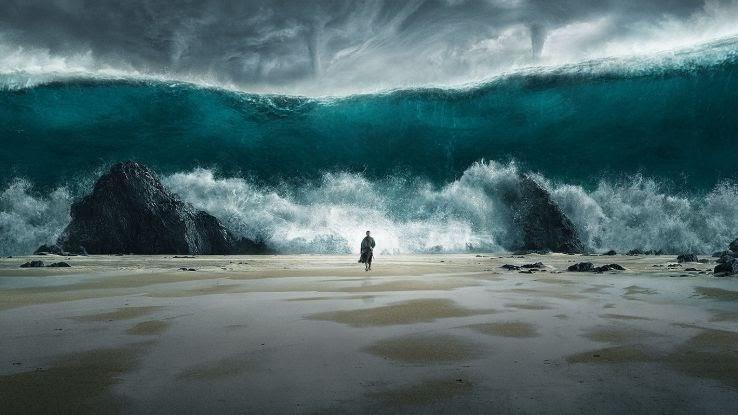
Panned for neglecting to keep things appropriate to the period and whitewashing what should be a very diverse and intricately designed feature, Exodus: Gods and Kings made an exodus from the minds of viewers almost immediately. The most creative thing about it? The new title — and that’s not even very good.
Total Recall (2012)
Based on the Philip K. Dick story “We Can Remember It For You Wholesale,” Total Recall was made into a successful sci-fi classic in the 1990s by director Paul Verhoeven. In true ’90s form, that definitive adaptation starred Arnold Schwarzenegger and Sharon Stone, but the 2012 remake traded all that for a hollow, paint-by-numbers version.
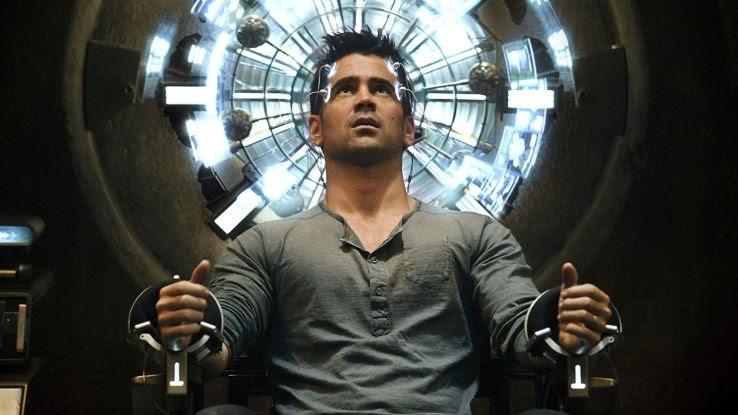
Perhaps studio execs think bigger is better? Sure, this remake had some impressive action sequences and was helmed by the always-charming Colin Farrell and battle-hardened Kate Beckinsale, but it wasn’t much beyond those fun, updated fight scenes. Long story short, even all the CGI in the world doesn’t help this remake come even close to challenging the original film’s endearing ’90s aesthetic or expert craft. We suggest erasing the remake from your mind.
What Men Want (2019)
Nancy Meyers is a name familiar to anyone who has a passion for romantic comedies from the 2000s; Diane Keaton sipping on red wine while bundled up in a cozy sweater; and/or exquisitely designed homes. (We’re looking at you, Parent Trap. And you The Holiday.) In a time when sweet romances filled with witty banter seem like a lost art, it’s understandable that movie execs would want to revive this genre.
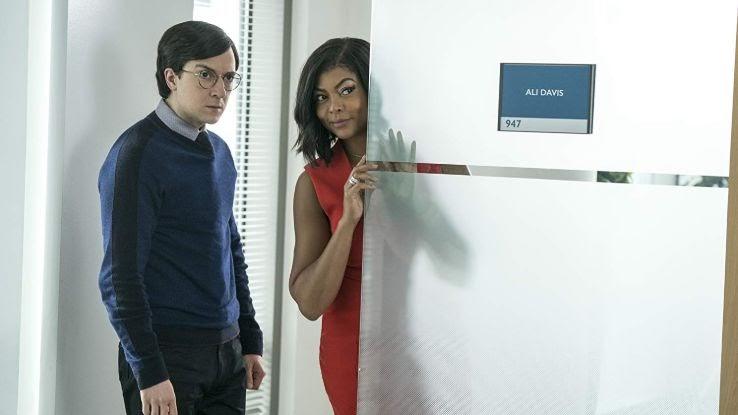
But instead of taking a winning formula and applying it to new stories and fresh ideas, execs landed on remaking one of Meyers’ most famous films, What Women Want. The caveat? This 2019 version put a spin on the original, becoming instead What Men Want. Starring Taraji P. Henson and Tracy Morgan, the film is simply not what nostalgic moviegoers wanted. Writing for the London Evening Standard, critic Matthew Norman panned the gender-swapped remake, writing “What begins as a standard gross-out affair (with a prosthetic #MeToo limb clumsily grafted to the body) ends in a treacly, glib, made-for-TV wasteland.”
Victor Frankenstein (2015)
In the same vein as The Mummy, 2015’s Victor Frankenstein hoped to appeal to those who were familiar with classic Universal monster Frankenstein — you know, the character based on the nameless “monster” that doctor Victor Frankenstein reanimates in Mary Shelley’s classic novel. The 2015 remake attempted to right the wrongs of movies past, which famously rebranded the “monster” himself as Frankenstein instead of the doc.
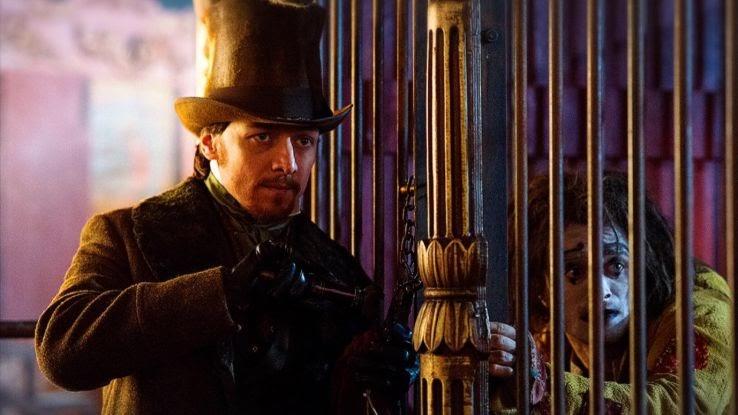
Unfortunately, recentering the film on Victor Frankenstein proved to be ill-conceived. (Yes, it’s completely shocking given the rich source material, but here we are.) Victor Frankenstein tries to emulate the look and feel of those classic monster movies while also balancing some contemporary concerns — and it doesn’t quite work. Not even the buddy dynamic that blossoms between stars James McAvoy and Daniel Radcliffe can save this disaster.
The Wolfman (2010)
Many consider 2017’s iteration of The Mummy Universal’s first attempt to kick off some sort of monster-movie universe, but the company had actually tried it twice before. The first of these attempts was 2010’s The Wolfman, a remake of the classic monster movie of the same name.
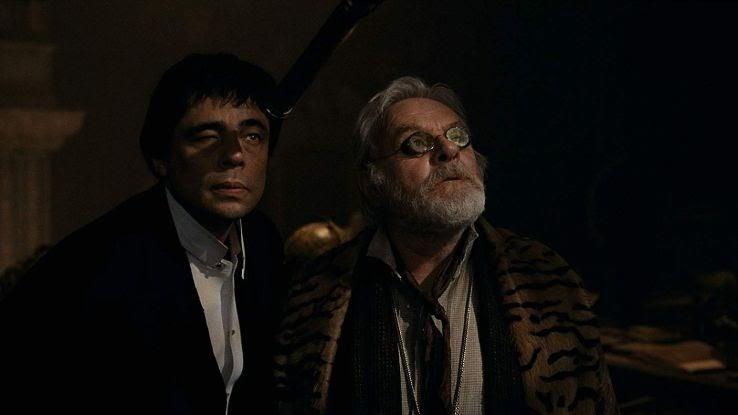
Starring Benicio Del Toro, The Wolfman tries to do what caused so many of these other monster-film remakes to flop in that it tries to combine the classic monster movie with a modern look and feel. While being gritty-blockbuster chic may have worked for Batman, it doesn’t look great on the Wolfman at all. Even with an A-list cast, the film manages to be bland and all over the place. In short, it’s all bark and no bite.
Dracula Untold (2014)
This one marks the second of three attempts Universal made to launch a cinematic universe based upon its plethora of old timey monster movies. In the end, Dracula Untold may be aptly named: It’s a story that should’ve remained unwritten and unseen. This retread trades in all the elements that make the character of Dracula so appealing in favor of an epic action-adventure plot line.
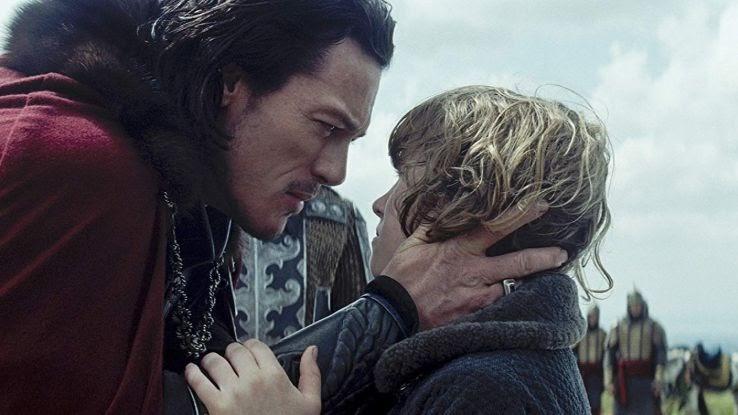
Maybe this was a desperate attempt to ride the Pride and Prejudice and Zombies and Abraham Lincoln: Vampire Hunter wave? Regardless, of any potential inspiration, this remake — which is, of course, based on the seminal vampire character — ends up being nostalgic about nothing in particular, nor inventive. Dracula Untold is made all the weirder by its decision to transport the character to the present day for no reason other than to put him in conversation with other Universal monsters — a plan that also didn’t plan out.
Rambo: Last Blood (2019)
While the Rambo franchise — spearheaded as always by the inimitable Sylvester Stallone — already had a little bit of nostalgia bait back with 2008’s Rambo, Stallone and crew decided audiences were hungry for more ’80s throwbacks. As a result, Rambo: Last Blood was born.
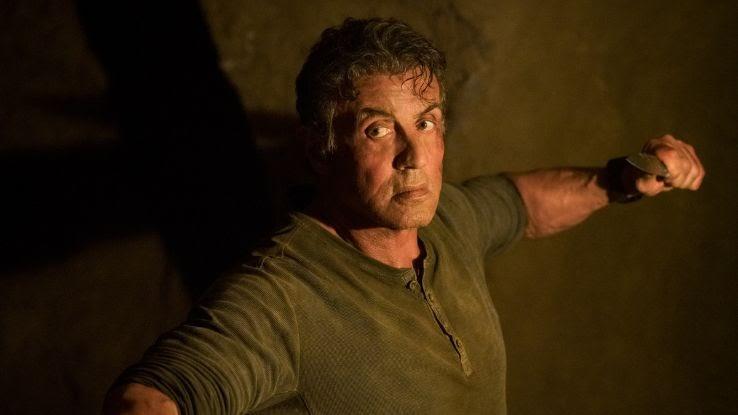
Unfortunately for critics, audiences and even Rambo himself, this film highlights all the faulty parts of the franchise. Even worse, this remake reminds viewers of the danger of longing for films that simply wouldn’t work within a modern framework or set of standards. It’s a shame, but it’s the truth. J.R. Jones of the Chicago Reader wrote that “The orgy of violence… should go a long way toward erasing whatever goodwill Stallone earned with his sentimental Rocky Balboa.”
Ghostbusters: Answer the Call (2016)
Released during what seems like the most prominent time for remakes, reboots, sequels and strange hybrids of the three, Paul Feig’s 2016 Ghostbusters film replaced the original’s cast of SNL men for three of SNL‘s highly acclaimed women — comedians Leslie Jones, Kate McKinnon and Kristen Wiig — and comedy legend Melissa McCarthy, who notably won an Emmy for hosting SNL.
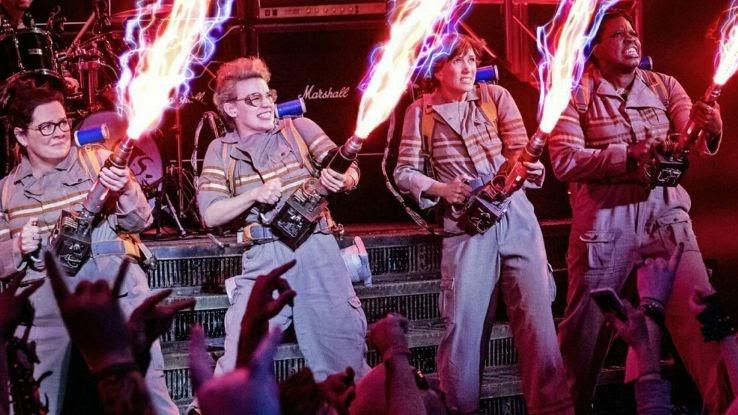
Plagued by misogynistic takes, the film had a hard time finding its footing in the lead up to its release. Critics ended up enjoying the film, which earned a 73% Certified Fresh rating on Rotten Tomatoes. The site’s aggregate pull quote noted that the reboot does an “impressive job of standing on its own as a freewheeling, marvelously cast supernatural comedy — even if it can’t help but pale somewhat in comparison with the classic original.” Unfortunately, “fans” weren’t as into it. We wonder why…
The Thing (2011)
No matter how unsuccessful the film ultimately was at pandering to fans of the 1982 original from horror mastermind John Carpenter, some credit is due to 2011’s The Thing for being somewhat on the forefront of the nostalgia craze of the 2010s.
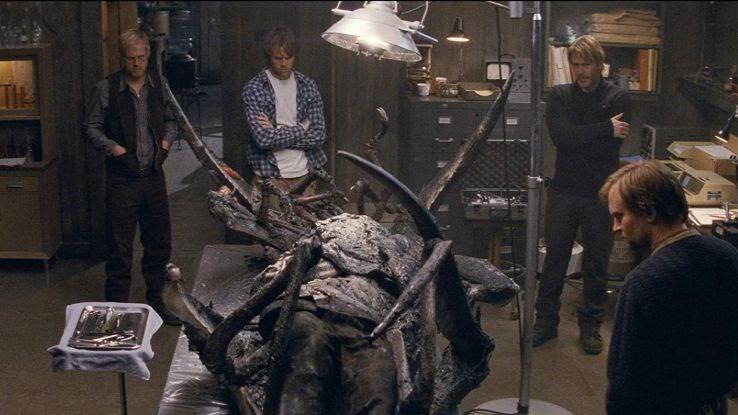
A prequel disguised as a remake, 2011’s The Thing doesn’t even compare to the original and never could have come close to emulating it without direct involvement from John Carpenter. Still, the filmmakers tried their best to hit the same beats as the original wintry supernatural horror film.
Adventures in Babysitting (2016)
There are always a few movies that any one of us watched on repeat throughout our childhoods. For countless fans, one of those films happens to be Chris Columbus’ iconic ’80s comedy Adventures in Babysitting. Playing out like a family-friendly version of Martin Scorsese’s After Hours, the film is good, harmless fun.
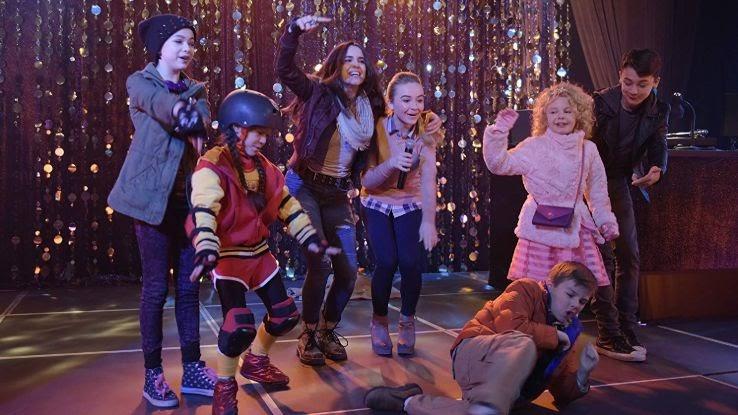
For some reason, though, Disney decided to remake the film in a direct-to-TV update that keeps the original title. Paling in comparison in every way, shape and form, all that the remake hoped to do was to profit, like some ill-intentioned, child-hating babysitter. And it couldn’t even manage that.
Shaft (2019)
Samuel L. Jackson already starred in a follow-up to the foundational 1970s Blaxploitation film Shaft back in the 2000s. But producers and executives decided that the film deserved a second sequel to accomplish the same thing the first one already did (and did better).
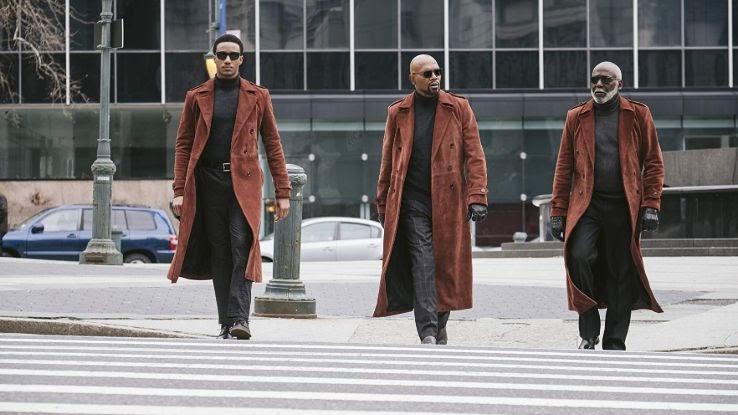
Rooted solely in nostalgia for the historic B-movie genre from the 20th century, 2019’s Shaft is actually regressive in the way it handles race and ethnicity from a modern perspective. If you want a revolutionary film with something important to say, stick to the original.
Power Rangers (2017)
Judging by the success of Michael Bay’s Transformers films, you might think that a Power Rangers movie would completely knock it out of the park. From grown adults longing for the days they spent playing with the action figures to a younger generation that grew up watching the show, Power Rangers should’ve soared.
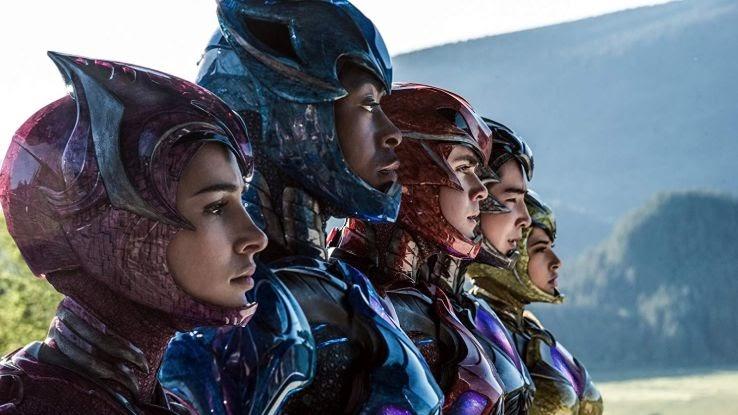
As it turns out, nostalgia isn’t a good enough reason to make a film. The movie was not as successful as one would’ve assumed, proving that not every item in the toy aisle can be a hit once more. However, the film has gained some traction as a cult favorite, so that’s something.
Charlie’s Angels (2019)
A remake of the two early 2000s remakes of the TV series of the same name (confusing, right?), 2019’s Charlie’s Angels film was one of the most lukewarm releases of that year. Despite an all-star cast led by internet darling Kristen Stewart, this reboot received some mixed reviews, though ultimately ended up with a respectable 78% from fans on Rotten Tomatoes and a less-than-stellar 52% aggregate score from critics.
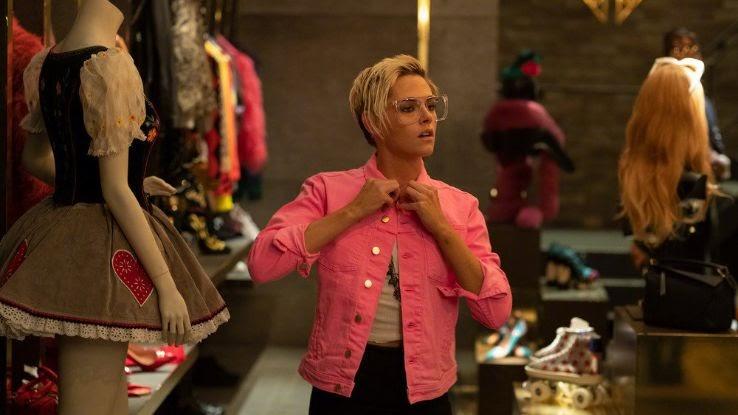
Hoping to profit off of the reverence for the original series and the nostalgia for the McG films, this version didn’t quite hit the mark. Despite being directed and written by comedic genius Elizabeth Banks, the action-comedy remake felt paint-by-numbers. And, as Mediaversity Reviews’ Carla Hay noted the film’s “underlying ‘mean girls’ streak contradicts the feminist ideals that Charlie’s Angels tries to convey.”
Terminator Genisys (2015)
Following the one-two punch of James Cameron’s first two films from the 1980s and 1990s, there have been multiple attempts to pull off sequels. It seems that these killer robot movies would be better off if they dropped the nostalgia for their own history and moved on to bigger and better horizons, instead of retreading the well-worn story of Sarah and John Connor.
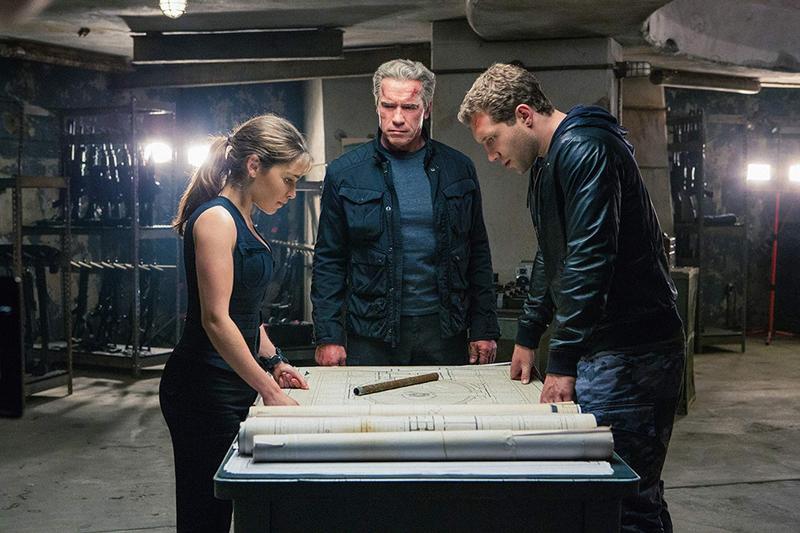
While Terminator Salvation from 2009 wasn’t great, Terminator Genisys is even worse — and it’s not just because it spells its name with a “Y” either. Lacking the depth and visual thrills of the original films, Genisys banked solely on fans being stoked about Arnold Schwarzenegger’s return. Writing for Times (UK), Katie Muir puts it best: “As ill-conceived as it is ill-spelt, Terminator Genisys fires a rocket-propelled grenade into its own franchise.” If you want a sequel to this self-obsessed franchise, 2019’s Certified Fresh Terminator: Dark Fate might be your best bet. While not perfect, Dark Fate does provide the thrill of an onscreen reunion between Schwarzenegger and a very underutilized Linda Hamilton.
Star Wars: Episode IX—The Rise of Skywalker (2019)
Star Wars: Episode IX—The Rise of Skywalker (TROS) is the (alleged) final entry in the Skywalker Saga, which began all the way back in 1977. Ahead of its December 2019 release, TROS was not getting the rave reviews Lucasfilm and Disney hoped it would. The “sequel trilogy,” composed of Episodes VII, VIII and IX, began in 2015 with the J.J. Abrams-helmed The Force Awakens, a film that allowed for nostalgia and made the franchise accessible to newcomers.
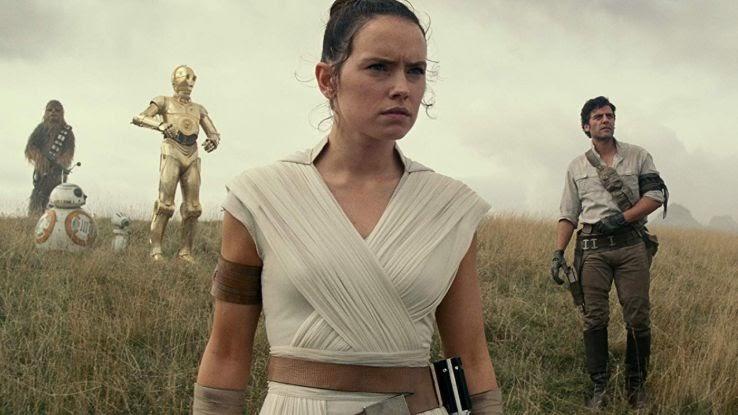
Unfortunately, filmmakers didn’t seem to have an overall, cohesive vision for the sequel trilogy, which led to Abrams, who was brought back for TROS, and co. retconning quite a few key details from Rian Johnson’s critically acclaimed Episode VIII. Not only did the film receive flack for shoehorning a very specific vision into TROS, but was criticized for creating gaping plot holes and pandering to a small (but loud) subset of fans who took issue with the trilogy’s more diverse cast of characters and timely themes. In the end, no one was happy.
The Magnificent Seven (2016)
Any time The Magnificent Seven is brought up, it’s almost like opening up a can of worms. The original film is itself a remake of Akira Kurosawa’s Seven Samurai, which means that 2016’s version of the film is a remake of a remake. It’s no surprise that the film can’t compare.
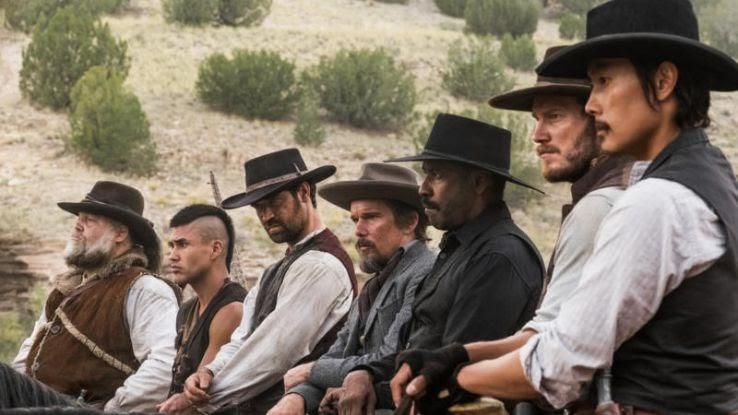
When looking at 2016’s Magnificent Seven, it’s obvious that it was created simply to harken back to the original film from 1960. It’d be nice if a contemporary film could emulate the Western genre, but this movie isn’t it.
Ocean’s Eight (2018)
Ocean’s Eight was 2018’s attempt at revitalizing the trilogy of films that Steven Soderbergh released in the mid-2000s. Those films starred the likes of George Clooney and, in turn, were based off the Rat Pack’s crime-heist film of the same name from 1960. Led by Sandra Bullock and Cate Blanchett, this gender-bent sequel featured an incredible ensemble cast, including Sarah Paulson, Helena Bonham Carter, Rihanna, Mindy Kaling, Awkwafina and Anne Hathaway.
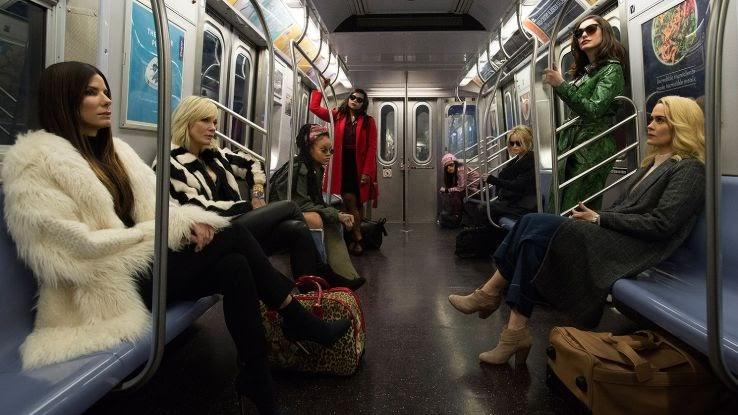
Certified Fresh on Rotten Tomatoes by critics, Ocean’s Eight may not have been “as smooth as its predecessors” but reviewers praised the cast’s “chemistry and flair.” All of this to say, this more-than-competent thriller suffered from The Ghostbusters (2016) Effect, wherein misogynistic bad-mouthing and upset “fans” of the male-led versions marred its successes. While it’s not the best film, it certainly “pulls it off” better than most modern heist films.





